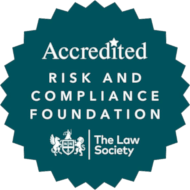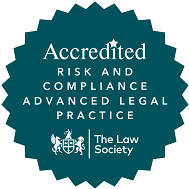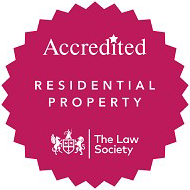Japanese knotweed is an invasive plant in the UK that causes a lot of concern to homeowners due to the potential damage it can cause to buildings and other structures.
Due to its fast growth, and ability to break through cracks and other weaknesses in masonry, many banks across the UK refuse to give mortgages for homes that have Japanese knotweed growing nearby. This has been shown to knock an average of 10% off the value of affected homes.
However, there is good news for residential property owners affected by Japanese knotweed. The Royal Institute of Chartered Surveyors (RICS) has updated its guidelines around the invasive plant to reflect new research that shows Japanese knotweed is easier to control and less likely to cause serious structural damage than was previously thought.
The new RICS guidelines should make it easier for prospective buyers to get mortgages on properties impacted by Japanese knotweed, making them more straightforward to sell and boosting their value.
What does the law say about Japanese knotweed in the UK?
Japanese knotweed is covered by several different laws in the UK. These are:
- The Wildlife and Countryside Act 1981
- The Environmental Protection Act 1990
- The Waste Management Licensing Regulations 1994
- The Hazardous Waste Regulations 2005
- The Anti-social Behaviour, Crime and Policing Act 2014
While it is not illegal to have Japanese knotweed on your property, it is an offence under the Wildlife and Countryside Act 1981 to plant or cause knotweed to grow in the wild.
Failing to control knotweed on your property or allowing it to grow into neighbouring land could result in prosecution under the Anti-social Behaviour, Crime and Policing Act 2014.
Treating Japanese knotweed without an appropriate licence or failing to dispose of it correctly could result in action under the Environmental Protection Act 1990.
If Japanese knotweed is treated with herbicides covered by the Hazardous Waste Regulations 2005, then failure to properly dispose of the affected weeds could also lead to prosecution. The disposal of knotweed is also likely to be covered by the Waste Management Licensing Regulations 1994.
How does the RICS update affect Japanese knotweed laws?
The new RICS guidelines do not change the law surrounding Japanese knotweed. What they do is remove the ‘7-metre rule’ that was previously used to determine how much risk Japanese knotweed posed to a property.
Under the 7-metre rule set out in RICS previous Japanese knotweed guidance, a property was considered to be at higher risk of structural damage from knotweed if it was growing within 7 metres of the building. Any property that fell foul of the 7 metre-rule was likely to be very hard to mortgage and would almost certainly lose significant value as a result.
The new guidelines state:
“Research has demonstrated, and it is now generally accepted, that Japanese knotweed poses little or no risk of structural damage to robust buildings with substantial foundations such as dwellings, as opposed to less sturdy structures with shallow foundations, such as conservatories, garages or boundary walls. The so-called ‘7m rule’ focused more on what has been demonstrated to be an overstated risk of Japanese knotweed to buildings”.
The new guidelines shift the emphasis on surveyors when assessing knotweed affected property. They should now focus on how the weed can be controlled and managed, rather than the risk to the building. Surveyors will be asked to use their own discretion in this, rather than the ‘one-size fits all’ approach of the 7-metre rule.
Removing the 7-metre rule means many properties that would previously have been deemed at high risk of structural damage from knotweed are now likely to be rated as being at much lower risk. This should make it simpler to get mortgages on these properties and increase their value.
Why has RICS updated its guidance on Japanese knotweed?
The new guidelines come in response to the findings of a government report ‘Japanese Knotweed and the built environment’ by the House of Commons Science and Technology Committee.
The report states:
“The latest research suggests that the physical damage to property from Japanese knotweed is no greater than that of other disruptive plants and trees that are not subject to the same controls and do not have such a substantial ‘chilling’ effect on the sale of a property”.
With regard to the 7-metre rule, the report said:
“The ‘seven-metre rule’ that forms part of the 2012 risk assessment framework is being used as a blunt instrument in some mortgage lending decisions. It does not reflect the latest scientific evidence.”
The report called for “a much more nuanced and evidence-based risk framework” to “reflect the latest thinking on the significance of Japanese knotweed, in relation to the size of the infestation, the distance from the property, and the potential risk of any damage”.
The new RICS guidelines seek to answer this call and provide a more realistic assessment of any risk from Japanese knotweed.
What to do if you have Japanese knotweed on your property
If you have identified Japanese knotweed growing on your property it’s important to be wary, even with the new RICS guidelines in effect.
Japanese knotweed is an invasive species that must be controlled so that it does not spread and damage both the wildlife and any buildings it encounters. It is illegal to plant or allow Japanese knotweed to spread into the wild, doing so can result in hefty fines and, in some instances, require you to go to court.
However, it is not illegal to grow Japanese knotweed on your property as long as it is under control and does not spread to neighbours or other spaces outside of your garden. If you do need to get rid of Japanese knotweed on your property, you should use a properly licensed specialist and ensure any waste is disposed of correctly.
Despite the new RICS guidelines, having Japanese knotweed on a property may cause issues when it comes to selling or buying the property. If Japanese knotweed has been identified on a property you wish to buy or sell, it is sensible to speak to an experienced property law expert at an early stage to ensure you understand the risks and your options.
Get in touch with our conveyancing solicitors in Bournemouth
For expert advice and support when selling or buying a home, contact our conveyancing solicitors today by calling 01202 292 424 or emailing jll@prestonredman.co.uk.












